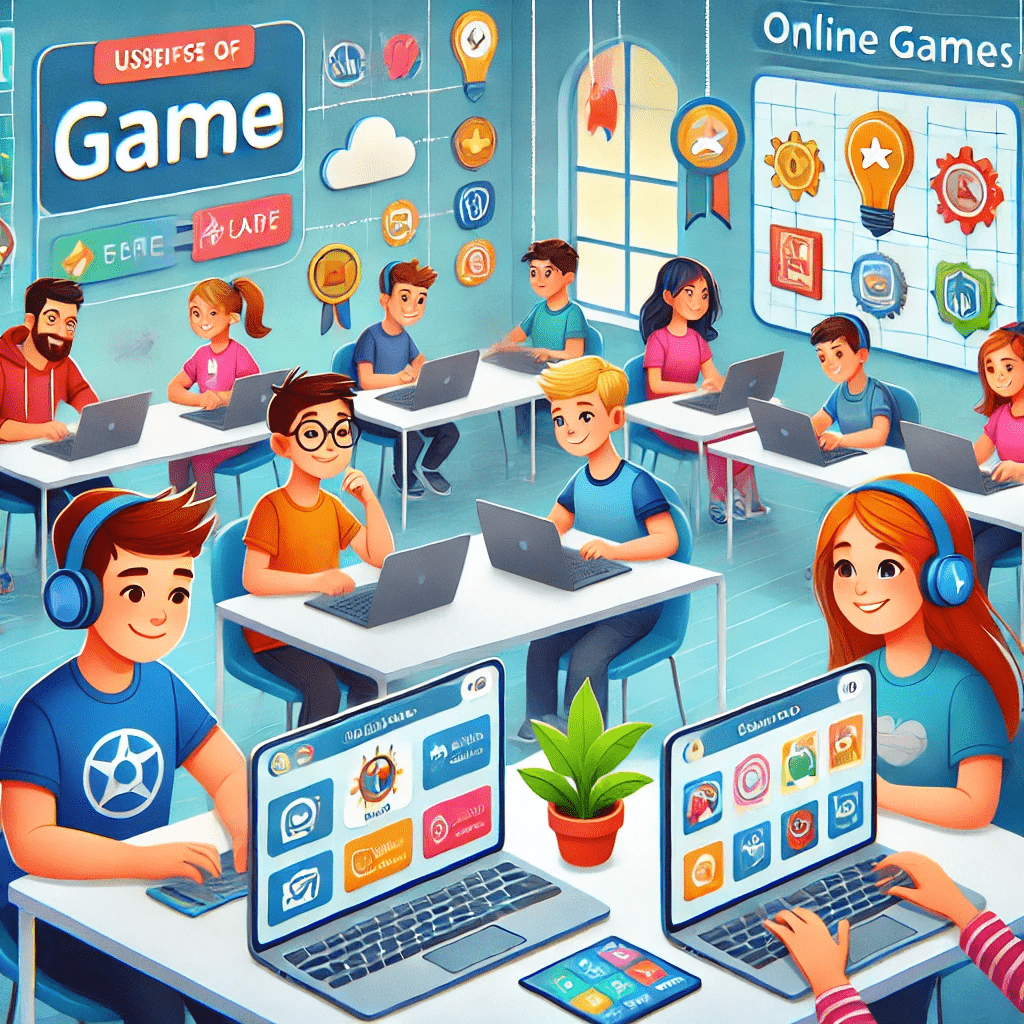The Benefits of Using Games in Online Schooling
Incorporating games in online schooling has revolutionized the way students learn, making education more engaging, interactive, and effective. Games have become an integral part of modern education, offering numerous benefits that enhance the learning experience. This article explores the advantages of using games in online schooling and how they can significantly improve educational outcomes.
Enhancing Engagement and Motivation
Boosting Student Engagement with Games
Games in online schooling capture students’ attention and keep them engaged for longer periods. Traditional teaching methods often struggle to maintain student interest, but games provide an interactive and enjoyable learning environment. This increased engagement leads to better retention of information and a more positive attitude towards learning.
Increasing Motivation Through Interactive Learning
Games motivate students by offering rewards, challenges, and instant feedback. These elements create a sense of achievement and progress, encouraging students to continue learning. When students see their efforts rewarded, they are more likely to stay motivated and committed to their studies.
Promoting Active Learning
Encouraging Critical Thinking and Problem-Solving
Games require students to think critically and solve problems, promoting active learning. They must analyze situations, make decisions, and adapt to new challenges, which enhances their cognitive abilities. This active participation in the learning process helps students develop essential skills that are applicable in real-world scenarios.
Facilitating Hands-On Learning Experiences
Games provide hands-on learning experiences that traditional methods often lack. Students can experiment, make mistakes, and learn from them in a safe and controlled environment. This practical approach to learning helps reinforce theoretical concepts and makes abstract ideas more concrete.
Supporting Personalized Learning
Catering to Different Learning Styles
Games cater to various learning styles, allowing students to learn in a way that suits them best. Visual learners benefit from graphics and animations, auditory learners from sound effects and spoken instructions, and kinesthetic learners from interactive gameplay. This personalized approach ensures that all students can benefit from the learning experience.
Allowing Self-Paced Learning
Games enable self-paced learning, allowing students to progress at their own speed. This flexibility is particularly beneficial in online schooling, where students may have different schedules and learning needs. Self-paced learning ensures that students fully understand the material before moving on to the next level, leading to better comprehension and retention.
Improving Collaboration and Communication
Fostering Teamwork Through Multiplayer Games
Multiplayer games foster teamwork and collaboration by requiring students to work together to achieve common goals. These collaborative experiences help students develop communication and social skills, which are essential for success in both academic and professional settings.
Enhancing Communication Skills
Games often require students to communicate effectively to succeed. Whether they are discussing strategies, giving instructions, or sharing feedback, students practice and improve their communication skills. This enhancement of communication abilities is a valuable outcome of incorporating games in online schooling.
Providing Immediate Feedback and Assessment
Offering Instant Feedback for Continuous Improvement
Games provide immediate feedback, allowing students to see the results of their actions right away. This instant feedback helps students understand what they are doing right and where they need improvement, fostering a continuous cycle of learning and growth.
Enabling Formative Assessment
Games serve as an effective tool for formative assessment, helping educators monitor student progress in real-time. By analyzing game performance, teachers can identify areas where students struggle and provide targeted support to address these challenges. This ongoing assessment ensures that students receive the help they need to succeed.
Enhancing Creativity and Imagination
Stimulating Creative Thinking
Games stimulate creative thinking by encouraging students to explore, experiment, and innovate. They must think outside the box to solve problems and achieve goals, fostering a creative mindset that is essential for success in the 21st century.
Encouraging Imagination Through Storytelling
Many games incorporate storytelling elements that engage students’ imaginations. These narratives make learning more enjoyable and memorable, helping students connect with the material on a deeper level. By immersing themselves in these stories, students enhance their imaginative and cognitive abilities.
Conclusion
Incorporating games in online schooling offers numerous benefits that enhance the learning experience. Games boost engagement and motivation, promote active and personalized learning, improve collaboration and communication, provide immediate feedback and assessment, and enhance creativity and imagination. By integrating games into the curriculum, educators can create a dynamic and effective learning environment that prepares students for future success.
For more insights on effective online education strategies, visit EdTech Magazine.
To read more articles like this, visit: Regent Studies




